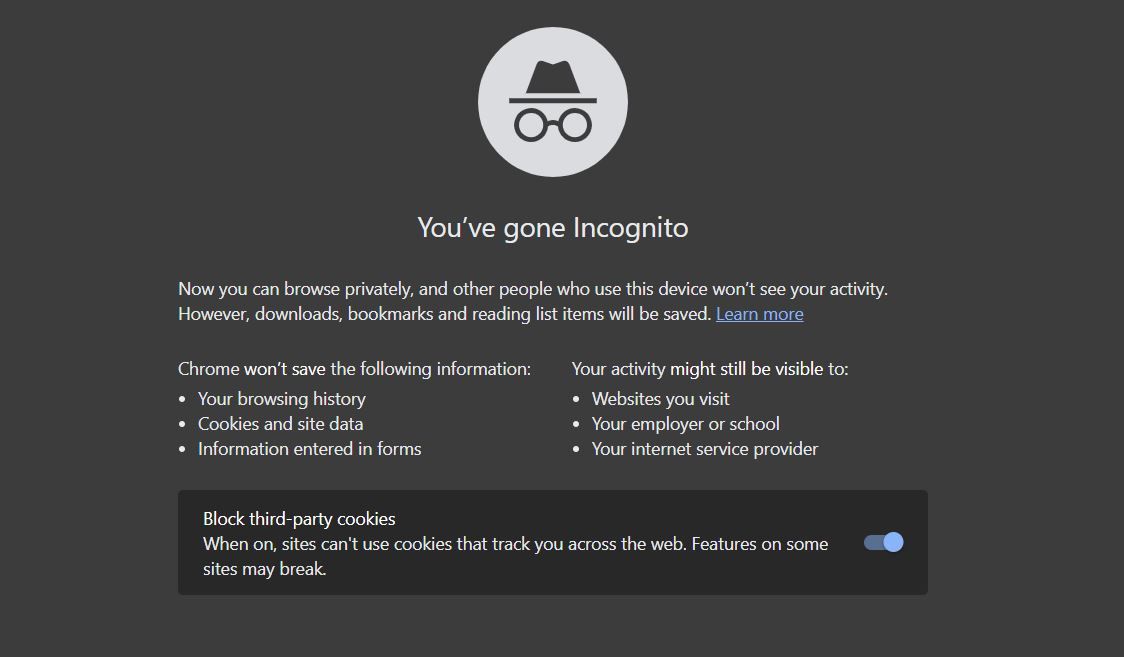Google Settles Class-Action Lawsuit Over Tracking Chrome Users in ‘Incognito’ Mode

Google is settling a legal case over the tracking of users who browse websites using “incognito” or “private” modes in Chrome and other web browsers.
According to the plaintiffs in the Brown et al. v. Google LLC class-action lawsuit, the company allegedly violated US federal laws in regard to invasion of privacy and wiretapping by continuing to track people even if they were using privacy modes in web browsers.
Incognito Mode: A Fake Sense of Privacy
The ramifications are significant, considering that most people who enable their web browsers’ privacy modes experience a misleading sense of security and privacy by assuming that their data remains confidential, unseen by third parties.
However, Chrome hints that its Incognito mode may be used to prevent people who share the same device from seeing each other’s activity. Furthermore, the privacy mode’s presentation screen explicitly states that activity might still be visible to websites you visit, employers, schools, and internet service providers.

Alleged Data Collection
Allegedly, Google collects data from users, even in Incognito mode, via Google Analytics and Google Ad Manager, as well as other plug-ins and applications. The plaintiffs claim that the data collection occurs even if users don’t interact with Google-supported ads.
Initially, the claimants pursued damages of at least $5,000 for every user impacted by Google’s data tracking and collection over the preceding four-year period.
Settlement Agreement Reached
Considering that many individuals rely on Google services and that Google’s data collection and tracking extended beyond just Chrome users, $5,000 per individual could amount to billions if the plaintiffs win.
At the close of last December, specifically on the 28th, the parties agreed to a settlement, but the precise details of the accord remain undisclosed.
Incognito Mode Doesn’t Anonymize Online Activity
People concerned about their privacy should understand that their browser’s privacy mode is merely an alternative to wiping their browsing history, cookies, active logins, download history, and other bits of information.
Unlike VPNs, browser privacy modes don’t employ actual privacy mechanisms such as IP cloaking or traffic encryption. Therefore, they don’t shelter against privacy violations from third parties. Using a trustworthy VPN, for instance, could significantly enhance privacy by masking IP addresses, obfuscating traffic, and securing data transmissions.
tags
Author

Vlad's love for technology and writing created rich soil for his interest in cybersecurity to sprout into a full-on passion. Before becoming a Security Analyst, he covered tech and security topics.
View all postsRight now Top posts
Outpacing Cyberthreats: Bitdefender Together with Scuderia Ferrari HP in 2025
March 12, 2025
Streamjacking Scams On YouTube Leverage CS2 Pro Player Championships to Defraud Gamers
February 20, 2025
How to Identify and Protect Yourself from Gaming Laptop Scams
February 11, 2025
Your Device ‘Fingerprint’ Will Go to Advertisers Starting February 2025
December 24, 2024
FOLLOW US ON SOCIAL MEDIA
You might also like
Bookmarks








